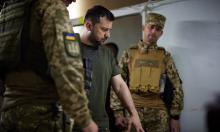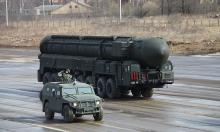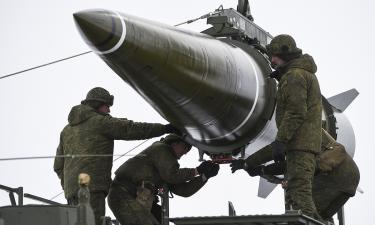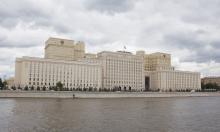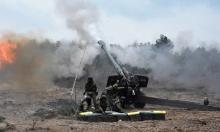Barack Obama travels to former hotbed of Sunni insurgency in Iraq
U.S. Presidential contender Barack Obama traveled to a former hotbed of the Sunni insurgency on Tuesday for talks with tribal leaders who joined the fight against al-Qaida in Iraq and now seek a deeper role in Iraq's political future.
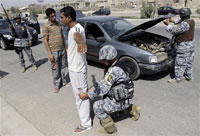
Obama - wrapping up his stop in Iraq - gathered with leaders of the so-called Awakening Council movement in Ramadi, capital of the western Anbar province where al-Qaida once had the upper hand against embattled U.S. and Iraqi troops.
But tribal sheiks last year began an uprising against insurgents that is credited with uprooting extremist strongholds and helping bring violence around Iraq to its lowest levels in four years.
The meetings came near the end of his two-day stop in Iraq, where he held discussions with Iraqi leaders on possible troops withdrawal initiatives and was briefed by top U.S. military commanders. He is scheduled to travel next to Jordan for talks with King Abdullah.
Obama sat in an ornate gold-colored chair next to Sheik Ahmed Abu Risha, the older brother of Abdul-Sattar Abu Risha, a leader of a Sunni revolt against al-Qaida in Iraq who was killed in Ramadi in September 2007. An Iraqi flag was draped behind them.
A spokesman for the Anbar province, Jamal Mashedani, said Obama's talks included further efforts to battle al-Qaida in Iraq and Awakening Council demands for a greater voice in Iraqi affairs.
It was the second highly symbolic stop for Obama in Iraq.
On Monday, he inspected the southern city of Basra, where an Iraqi-led offensive launched in March broke the control of Shiite militias with suspected links to Iranian forces.
Anbar, meanwhile, was the birthplace of the Sunni insurgency and scene to some of the intense urban battles of the war that Obama has long opposed. U.S. forces sustained some of its heaviest casualties in an offensive in November 2004 to wrest control of the Anbar city of Fallujah from insurgents.
Obama has given only a few brief comments since arriving in Iraq - the third leg of tour that's included Kuwait and Afghanistan. He promised to give his full impressions of the two war zones as his trip moves on to Jordan, Israel and then Europe.
But he leaves Iraq with a possible political boost: Iraqi backing for his hope to withdraw U.S. combat troops by 2010.
Iraqi leaders on Monday stopped short of giving specific timetables or endorsing Obama's proposal to withdraw combat troops within 16 months if he wins the presidency. But their comments fit roughly into Obama's campaign pledge.
Obama's Republican rival, Sen. John McCain, said Obama has been "completely wrong" to press for withdrawal timetables. "When you win wars, troops come home," McCain said during a visit in Maine with former U.S. President George Bush.
The Iraqi government, however, appears increasingly confident to press for timeframes as violence drops and Iraqi security forces expand their roles alongside the 147,000 U.S. soldiers in the country.
"We are hoping that in 2010 that combat troops will withdraw from Iraq," the government spokesman, Ali al-Dabbagh, said Monday after Obama met with Prime Minister Nouri al-Maliki.
Obama released a statement late Monday noting that Iraqis want an "aspirational timeline, with a clear date," for the departure of U.S. combat forces.
"They do not want an open-ended presence of U.S. combat forces. The prime minister said that now is an appropriate time to start to plan for the reorganization of our troops in Iraq - including their numbers and missions. He stated his hope that U.S. combat forces could be out of Iraq in 2010," Obama said in a joint statement with Sens. Chuck Hagel, a Republican from Nebraska, and Jack Reed, a Democrat from Rhode Island, who accompanied him to the war zone.
The senators also acknowledged a significant decline in violence in Iraq, and said that while there has been some "forward movement" on political progress, reconciliation and economic development, there has not been "nearly enough to bring lasting stability to Iraq."
Obama told ABC News that military leaders have "deep concerns" about a timetable that does not account for changing conditions.
"I don't think that there are deep concerns about the notion of a pullout per se," he said in the television interview. "There are deep concerns about, from their perspective, of a timetable that doesn't take into account what they anticipate might be some sort of change in conditions."
Subscribe to Pravda.Ru Telegram channel, Facebook, RSS!
